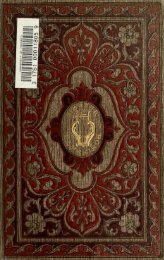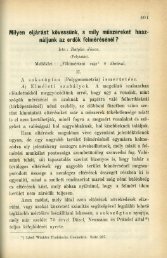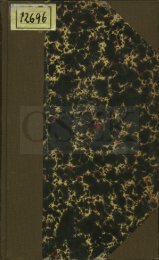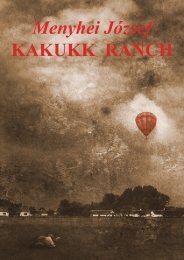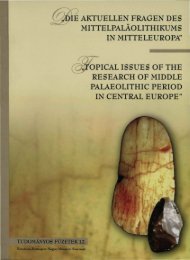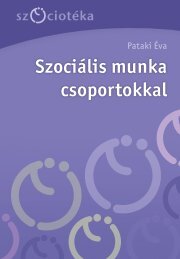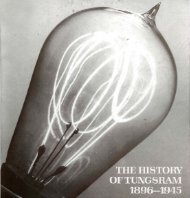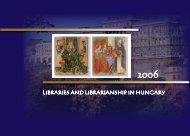national populism and slovak â hungarian relations in - MEK
national populism and slovak â hungarian relations in - MEK
national populism and slovak â hungarian relations in - MEK
Create successful ePaper yourself
Turn your PDF publications into a flip-book with our unique Google optimized e-Paper software.
Miroslav KocúrNational Populism <strong>and</strong> Slovak – Hungarian Relations <strong>in</strong> Slovakia 2006 – 2009. Forum M<strong>in</strong>ority Research Institute Šamorín – Somorja, 2009with respect to the highest <strong>in</strong>stance (i.e. God) from which it derives its orig<strong>in</strong><strong>and</strong> its contemporary existence.Furthermore, everyday life on the level of society <strong>and</strong> <strong>in</strong>dividual isorganized on the foundation basis of legislation that operates from lawsorig<strong>in</strong>at<strong>in</strong>g from a theophanic experience. This experience is very importantfor an <strong>in</strong>dividual <strong>and</strong> subsequently for his decision to shape the life of acommunity accord<strong>in</strong>g to this experience. Theophany is materialized througha personal experience of an <strong>in</strong>dividual (e.g. Moses) who <strong>in</strong>troduces hisexperience <strong>and</strong> its implications to the community he leads. This moment isfurther strengthened by the nature of narration that is <strong>in</strong> the Bible relatedto constitution of an ethnic community led by the <strong>in</strong>dividual <strong>in</strong> the time ofits mak<strong>in</strong>g <strong>and</strong> self-def<strong>in</strong>ition. Based on this <strong>in</strong>dividual’s authority, theophanyis subsequently materialized with<strong>in</strong> the community that accord<strong>in</strong>g toaccounts is will<strong>in</strong>g to accept this ancient tale of its orig<strong>in</strong>. Besides, thisancient tale becomes the foundation of adm<strong>in</strong>ister<strong>in</strong>g social <strong>in</strong>stitutions,trade <strong>and</strong> economic life of the community. Be<strong>in</strong>g chosen lends a highermean<strong>in</strong>g to existence of the people that rationally <strong>and</strong> emotionally embracesthis explanation; also, it def<strong>in</strong>es the community’s identity.The literary form of such accounts features mythological constructs butit is not a myth. Relevant op<strong>in</strong>ions of modern experts confirm that the formof narration is determ<strong>in</strong>ed by the period <strong>in</strong> which these texts were created.So-called etiologic <strong>in</strong>tentions – i.e. explanation of causes of particular phenomena<strong>and</strong> reality – often rema<strong>in</strong> unnoticed <strong>in</strong> the process of these texts’<strong>in</strong>terpretation. 27 While struggl<strong>in</strong>g for their own identity <strong>in</strong> the biblical context,ethnic <strong>and</strong> <strong>national</strong> entities fought a campaign that offers a paradigmfor the universal effort to transform the world <strong>in</strong>to a global village.At the dawn of the Christian calendar, the transition from a <strong>national</strong>approach to a <strong>national</strong>-confessional one transcended <strong>in</strong>to an <strong>in</strong>tra-culturalarea. Supporters of the s<strong>in</strong>gle confession (i.e. the Christians) began to differentiatebased on their <strong>in</strong>ner attitudes <strong>and</strong> ethical st<strong>and</strong>ards. Tribal, consangu<strong>in</strong>eous,confessional <strong>and</strong> ritual identificators lost their orig<strong>in</strong>al mean<strong>in</strong>gs.It is good to realize these basic facts when look<strong>in</strong>g at several centuriesat the turn of the ages. In its essence, the Hellenic culture was a multiculturalworld of people <strong>and</strong> ideas. The ideological <strong>in</strong>terference <strong>and</strong> literaryaff<strong>in</strong>ity of biblical <strong>and</strong> non-biblical accounts on orig<strong>in</strong>s of the world, themank<strong>in</strong>d, <strong>national</strong> communities <strong>and</strong> cultures <strong>in</strong>dicate the way <strong>in</strong> which theoldest yet remarkably preserved texts of the Hebrew <strong>and</strong> Greek bible <strong>in</strong>terpretedreferences to particular ethnic or cultural entities.Through gradual <strong>in</strong>terpretation of the notions of ‘people’ <strong>and</strong> ‘nation’,these ancient texts offer basic frameworks <strong>and</strong> <strong>in</strong>terpretation keys to under-236


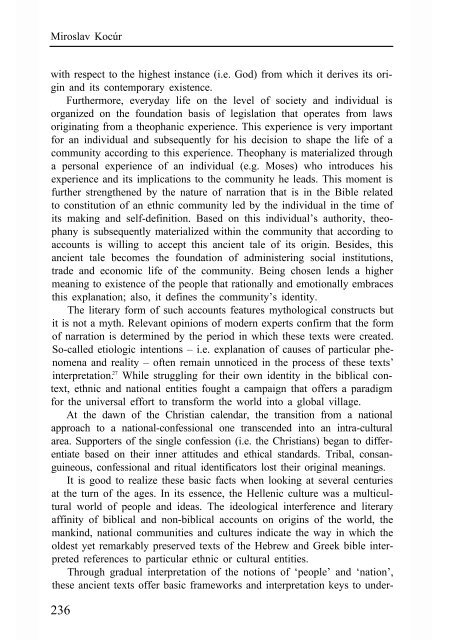
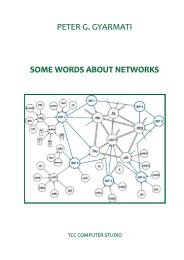
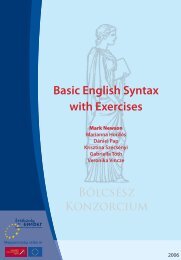
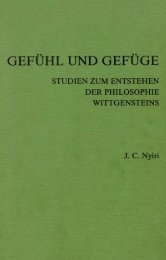
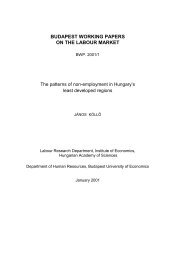

![Letöltés egy fájlban [4.3 MB - PDF]](https://img.yumpu.com/50159926/1/180x260/letaltacs-egy-fajlban-43-mb-pdf.jpg?quality=85)
